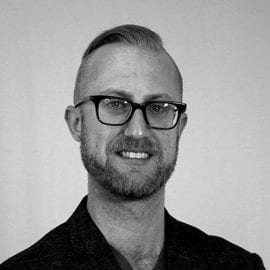Help us improve your experience. See content that is made for you!
See how IBM increased their efficiency by up to 30%!

Help us improve your experience. See content that is made for you!
See how IBM increased their efficiency by up to 30%!


As we announced in October, Autodesk Construction has launched a new podcast for the construction industry called Digital Builder and the first episode is now live!
I will be your host, bringing together enthusiastic guests to discuss the top issues facing the construction industry. In today’s episode, we explore why you should be excited about a digital Autodesk University (November 17-20) in 2020. We also discuss the positive impacts a diverse workforce has on the industry and how construction leaders can lift up workers from all backgrounds.
Digital Builder is a bi-weekly show where we dig deep, interviewing industry leaders on themes related to connected construction and the future of the industry. We’ll feature experts from within Autodesk, forward-thinking construction professionals, industry partners, and other influencers from all corners of the jobsite.
"As a leader of a construction firm, it's your responsibility to find ways... to lift up people of more diverse backgrounds." — Allison Scott, Director of Construction Thought Leadership & Customer Marketing, Autodesk
Episode 1 covers why Autodesk University’s new digital experience will be as exciting as ever and includes a deep discussion on the importance of diversity, equity, and inclusion within the construction industry. You will hear from Cliff Cole, VDC Director at The PENTA Building Group and Allison Scott, Director of Construction Thought Leadership & Customer Marketing at Autodesk.
"Mentoring is so important because it sets the path for that individual to help them become the person they can be." — Cliff Cole, VDC Director, The PENTA Building Group
New episodes of Digital Builder go live every two weeks. Enter your email address into the form below and we’ll let you know when each episode drops. You can also subscribe to and rate the show in your favorite podcast player including Apple Podcasts, Spotify, Stitcher, or wherever you listen to podcasts.
4:15 Allison Scott:
“Autodesk University is a global event. And for the first year we're bringing that community, that expertise, that energy and that sense of learning to a digital environment.”
16:20 Allison Scott:
I had a very distinct honor of attending AU a number of times as a customer, when I was in the industry, as well as now having been a member of Autodesk and it's an investment. This year for the first time since we're going digital, the Autodesk organization made a decision to make it free so that we could go deeper and wider [on our audience] than we've ever been before.
8:40 Cliff Cole:
“So for me re-imagining the impossible is almost like a daily thing that I do. It's always trying to think outside the box and challenging the status quo. And I mean, with the new technology we're looking at, we're trying to be more consistent with getting drones on job sites or virtual reality and predictive analytics, connected construction, because as we all have dealt with an industry, communication is one of the biggest struggles we have, a lack of communication or just inefficient communication.”
13:55 Allison Scott:
I think this year's theme for AU is like so indicative of what we've all been like living with literally, and we've all been re-imagining what it means to come together. We've all been re-imagining what it means to work remotely. And we've all re-imagined what it means to keep a job site alive, even despite all of these hurdles and challenges.
22:13 Cliff Cole:
It starts with the top, our president and our executive committee [of PENTA Group]. It's being encouraged throughout the company and then allows people that want to engage in the conversation. But sometimes it's scary because you don't know what you can and cannot say. You don't know how people want to take it. You don't know other people's perspectives. We work together, but we haven't seen each other through the course of my life. So what we want to encourage is we want to bring awareness. We want to bring awareness to what the issues people are talking about and want to deal with.
26:33 Allison Scott:
There's a really important thing around making these conversations visible. If we don't see people of color in leadership roles, if we don't see women on the job site, if we don't see conversations and collaboration happening with respect and equity, then we don't know that it's possible.

May we collect and use your data?
Learn more about the Third Party Services we use and our Privacy Statement.May we collect and use your data to tailor your experience?
Explore the benefits of a customized experience by managing your privacy settings for this site or visit our Privacy Statement to learn more about your options.